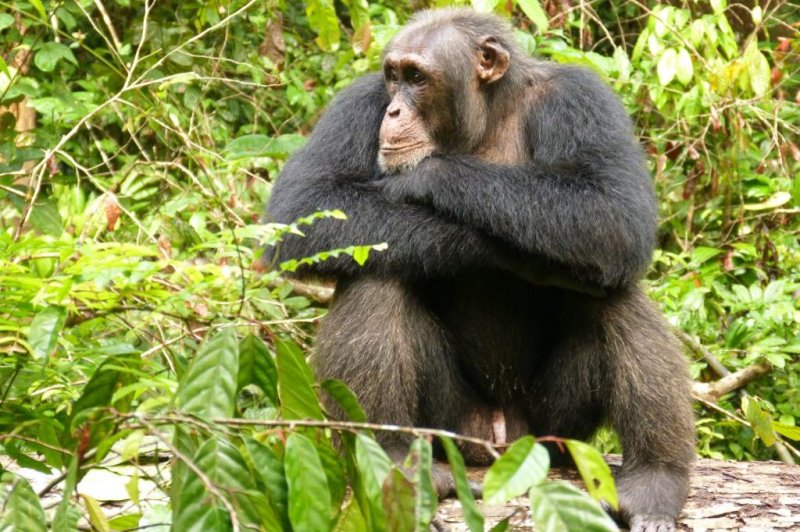Scientists determined chimps are more stressed and less aggressive during periods of social instability. Photo by Anna Preis/MPG
April 5 (UPI) -- Chimpanzees get stressed during times of social instability, according to a new study.
Scientists at the Max Planck Institute for Evolutionary Anthropology in Germany studied the behaviors of male chimps living inside the Ivory Coast's Taï National Park. Researchers also collected urine samples to measure the chimps' cortisol levels.
Their analysis showed chimps experience higher levels of stress during periods of heightened competition among males. Surprisingly, during periods of male-male competition, chimps display lower levels of aggression.
The contradiction suggests two things. First, chimps get stressed when the social order is in doubt. Second, chimps avoid conflict during periods of instability to promote group cohesion.
The latest research highlights the physiological demands of navigating social hierarchies. Higher social status provides chimps with health and fitness benefits, but maintaining a position at the top is a drain on energy.
"To investigate costs associated with dominance acquisition and maintenance, we examined potential sources of energetic and psychosocial stressors that male chimpanzees might be exposed to on a daily basis, and particularly during periods when males compete intensively over dominance status and mating opportunities," lead researcher Anna Preis said in a news release.
The research findings -- published this week in the journal Frontiers in Ecology and Evolution -- showed stress spikes during periods of social instability, while aggression spikes during periods of social stability.
Status maintenance, it turns out, is less stressful for chimps. But as previous studies have shown, primates are especially prone to stress caused by unstable relationships.
"Our study shows that open aggression was not the source of the high stress levels of males during periods of heightened male-male competition, but that males were affected by the social uncertainty induced by these competitive periods," said Preis. "We investigated two contexts that induce social instability, competition over status and competition over mating opportunities."
The analysis showed male-male competition was stressful for all male chimps, regardless of their social standing.
The new research also demonstrated the importance of social cohesion and cooperation to chimpanzee groups. When social order is most vulnerable, chimps altered their behavior to maintain a base level of cohesion.
"Chimpanzees are highly territorial and cooperatively defend their territories against intruders," said researcher Roman Wittig. "Male chimpanzees might therefore avoid aggressive behavior when dominance relationship are unclear and unstable, as part of a conflict management strategy that allows them to cooperate as a group during such periods."















